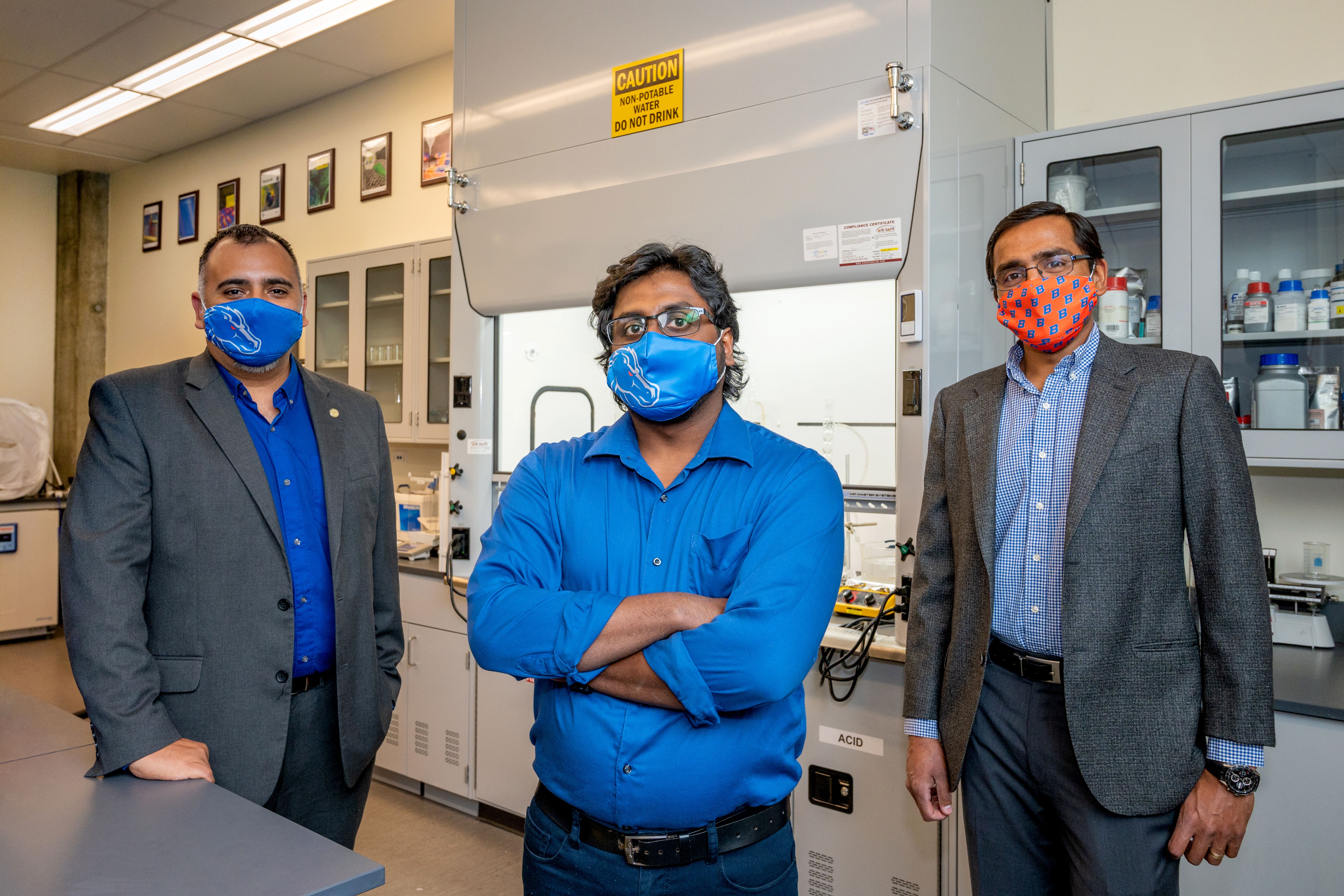
Tony Valayil Varghese, a Boise State alum of the Micron School of Materials Science and Engineering, is determined to advance the potential of nanomaterial inks for printed and flexible hybrid electronics with the support of an IGEM Commerce grant of more than $196,000. Through this grant, Boise State research scientist Varghese will be able to develop these inks and commercialize them in collaboration with INFlex Labs, LLC., owned and operated by Boise State University associate professor Dave Estrada and associate professor Harish Subbaraman.
Nanomaterial inks are composed of nanoparticles, or particles measuring one billionth of a meter, and can be used in additive manufacturing (3D printing) applications. For this research, the group is working to develop, characterize, tune and ultimately commercialize inks made of such elements and materials as platinum, gold, nickel and graphene.
“Our interest in this project is to expand the inventory of commercial inks for printed electronics,” said Estrada. “We’re very interested in high temperature materials and noble metals, which can be used for specific sensor applications in the biomedical, energy, and defense industries.”
The goal is to develop nanomaterial inks that can be used with many different kinds of printers, and for a broad array of applications, such as the creation of sensors, wearable technology, flexible electronics, and more. For example, the platinum nanomaterial inks being developed by Varghese and INFlex Labs, LLC could have a serious impact on implantable medical devices needed to save lives.
“We developed and currently market platinum nanoinks, which are used in many implantable devices because of platinum’s biocompatibility, high electrical conductivity, radiopacity and inert nature within the body,” explained Varghese. “Platinum is currently used in many medical devices such as pacemakers, stents, catheters and neuro modulators. Printability of these nanomaterial creates opportunities for developing lightweight, flexible, advanced sensors and electronic components that are compatible with body and can be implanted on to vital organs for continuous monitoring and control.”
The researchers are excited to not only advance the field of nanomaterial inks, but also to expand Boise and Idaho’s industrial capacity as creators and manufacturers of pioneering technologies.
“I think a lot of people get excited looking at high tech gadgets in movies, but we have a real chance of making that realizable here in Boise,” said Subbaraman. “That could attract a lot of potential back into the state as well, because we would then have a huge potential to grow as a regional leader in these different devices.”
This research was made possible with support from the Division of Research and Economic Development staff, including: Jana LaRosa, director of the Office of Research Development; Cara Greenlee, Pre-Award Manager, and Jennifer Lutke, Operations Manager of the Office of Sponsored Programs.